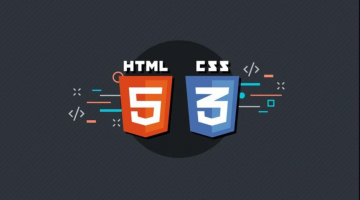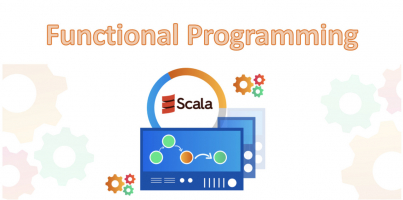Top 5 Best Books On Intellectual Property And Copyright
Do you need some suggestions for your reading list? We've compiled a list of the year's most compelling and popular books. Include the best books on ... read more...intellectual property and copyright on your reading list.
-
Henri Charmasson is a lawyer who has practiced intellectual property law for 35 years. John Buchaca is a partner at Charmasson, Buchaca & Leach, LLP and an intellectual property attorney.
Patents, Copyrights and Trademarks For Dummies provides you with lots of useful tips and step-by-step guidance from filing to issue to license. It also acquire and protect your share of this major business asset. The book is among the best books on intellectual property and copyright.
Want to protect and exploit your or your company's intellectual property rights? This simple guide will show you how to evaluate the commercial potential of your idea, conduct patent and trademark searches, document the invention process, license your IP rights, and comply with international laws. You also get detailed examples of each type of patent application!
Learn how to:
- Avoid application errors.
- Register trademarks and intellectual property rights.
- Comply with patent requirements
- Navigate difficult legal issues
- Protect your rights while traveling abroad.
- The entire body of patent laws in the United States
- Office actions and amendments as examples
- Sample forms
- Certificates of trademark registration
- Application workbooks
Author: John Buchaca and Henri Charmasson
Link to buy: https://www.amazon.com/Patents-Copyrights-Trademarks-Dummies-Charmasson/dp/0470339454/
Ratings: 4.4 out of 5 stars (from 264 reviews)
Best Sellers Rank: #56,750 in Books
#2 in Patent Law
#3 in Copyright Law
#174 in Law (Books)
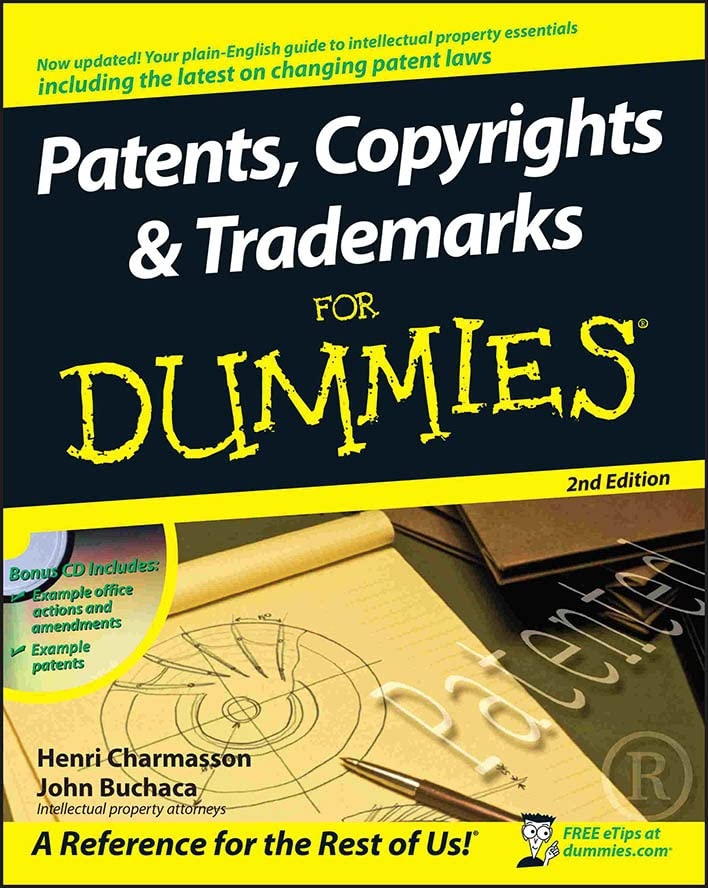
https://www.amazon.com/ 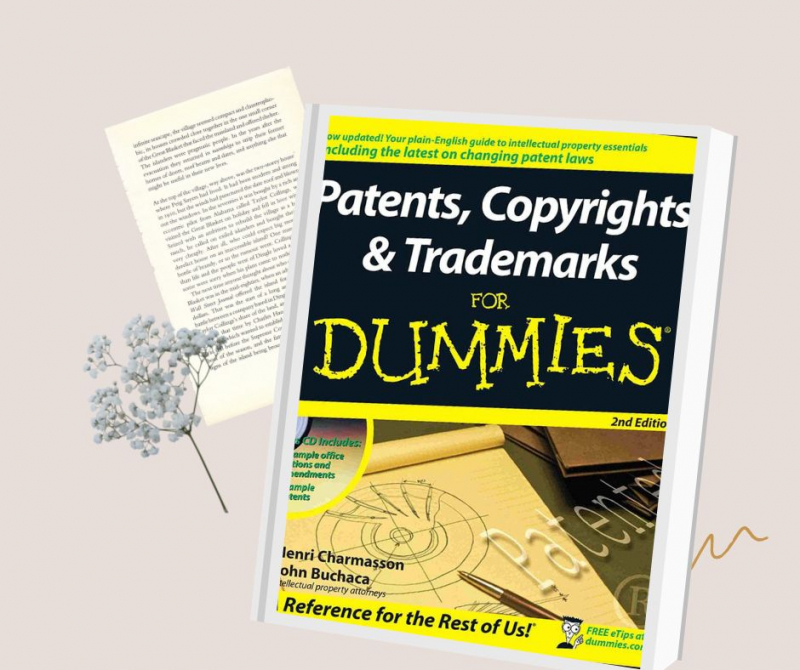
https://www.amazon.com/ -
Stephen Johnson earned his law degree in 1982 after studying genetics at Cambridge University. He later became an attorney and worked for Kirkland & Ellis LLP in the United States for over thirty years, most recently in San Francisco. He now focuses on intellectual property (IP) from a business standpoint, and he also consults on IP and other policy issues affecting neuroscience research for the US charity One Mind.
Intellectual property (IP) is frequently the most valuable asset of a company. Nonetheless, intellectual property is difficult to value, widely misunderstood, and frequently underutilized.
IP is estimated to account for $5 trillion in GDP in the United States alone. Patents, trademarks, domain names, copyrights, designs, and trade secrets are all covered. Unsurprisingly, businesses fiercely protect their own ideas and challenge the intellectual property of others. Infringement-related damages have spawned a sizable claims industry. However, intellectual property law is complicated, and the business, financial, and legal issues that surround it are difficult to navigate. Court decisions and interpretation of intellectual property laws can be unpredictable, and can drastically alter the fortunes of businesses that rely on their IP, as demonstrated by the pharmaceutical industry's battle with generic drugs.
This comprehensive intellectual property guide will assist businesses, investors, and creative thinkers in understanding the scope and nature of IP issues, asking the right questions of their advisors, and maximizing the value of this critical intangible asset. Guide to Intellectual Property is among the best books on intellectual property and copyright.
Author: Stephen Johnson
Link to buy: https://www.amazon.com/Guide-Intellectual-Property-protect-Economist/dp/1610394615/
Ratings: 4.7 out of 5 stars (from 48 reviews)
Best Sellers Rank: #371,260 in Books
#33 in Patent Law
#107 in Legal Self-Help
#2,614 in Entrepreneurship (Books)
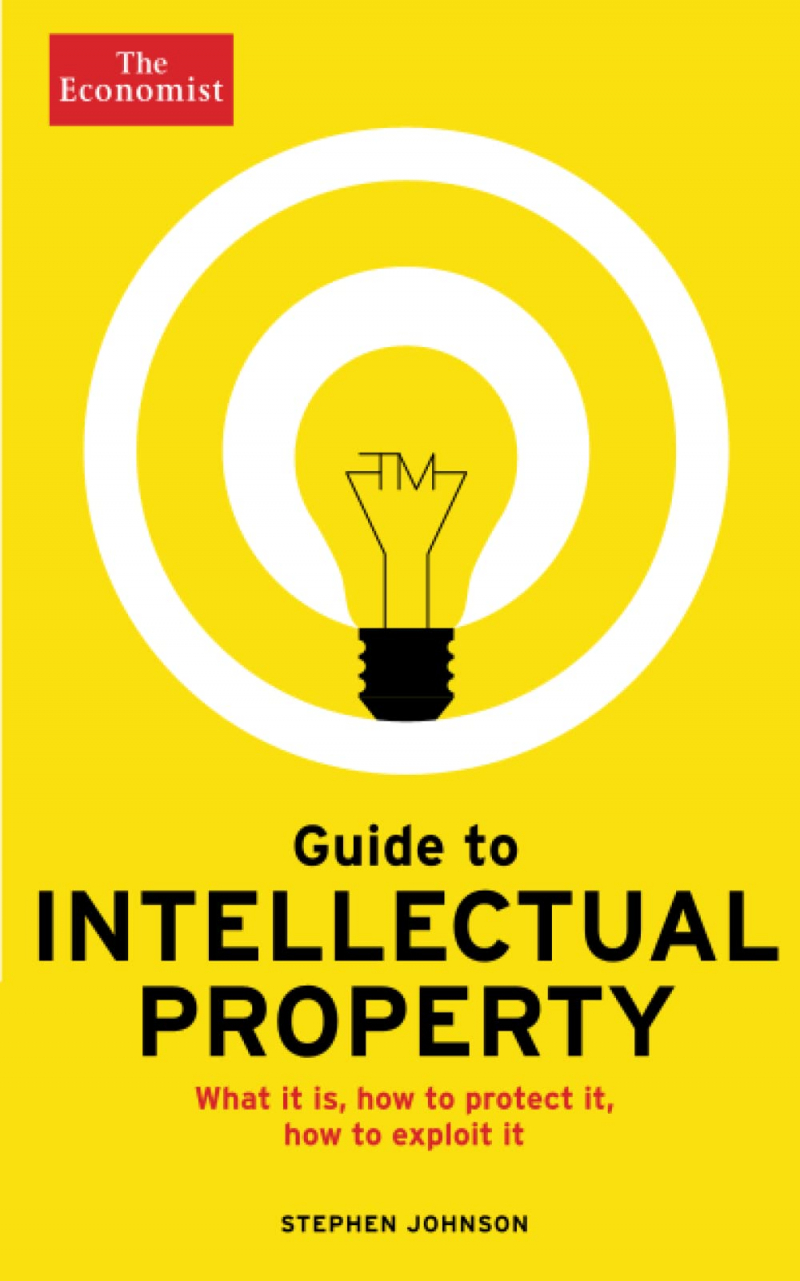
https://www.amazon.com/ 
https://www.amazon.com/ -
Claudy Op den Kamp is a Senior Lecturer in Film and a faculty member at Bournemouth University's Centre for Intellectual Property Policy and Management (CIPPM), as well as an Adjunct Research Fellow at Swinburne Law School in Australia.
Dan Hunter is the founding dean of Australia's Swinburne Law School. He is a world authority on internet law, intellectual property, and legal models based on artificial intelligence. He previously worked at QUT Law School, New York Law School, Melbourne Law School, the University of Pennsylvania's Wharton School, and the University of Cambridge.
What is the connection between the Mona Lisa, the light bulb, and a Lego brick? The answer, intellectual property (IP), may surprise you, because IP laws are all about us, but they are mostly ignored. They are complicated and arcane, and few people understand why copyright, patents, and trademarks are important. Claudy Op den Kamp and Dan Hunter have assembled a group of contributors from around the world in fields such as law, history, sociology, science and technology, media, and even horticulture to tell the story of intellectual property in 50 objects in the book A History of Intellectual Property in 50 Objects. These objects not only demonstrate the importance of the IP system, but also how it has evolved and influenced history. Each object is at the heart of a story that anyone interested in how great innovations provide a unique window into our past, present, and future will enjoy.
Author: Dan Hunter and Claudy Op
Link to buy: https://www.amazon.com/History-Intellectual-Property-50-Objects/dp/110842001X/
Ratings: 4.4 out of 5 stars (from 47 reviews)
Best Sellers Rank: #243,597 in Books
#23 in Business Law (Books)
#70 in Intellectual Property Law (Books)
#73 in Franchising Law (Books)
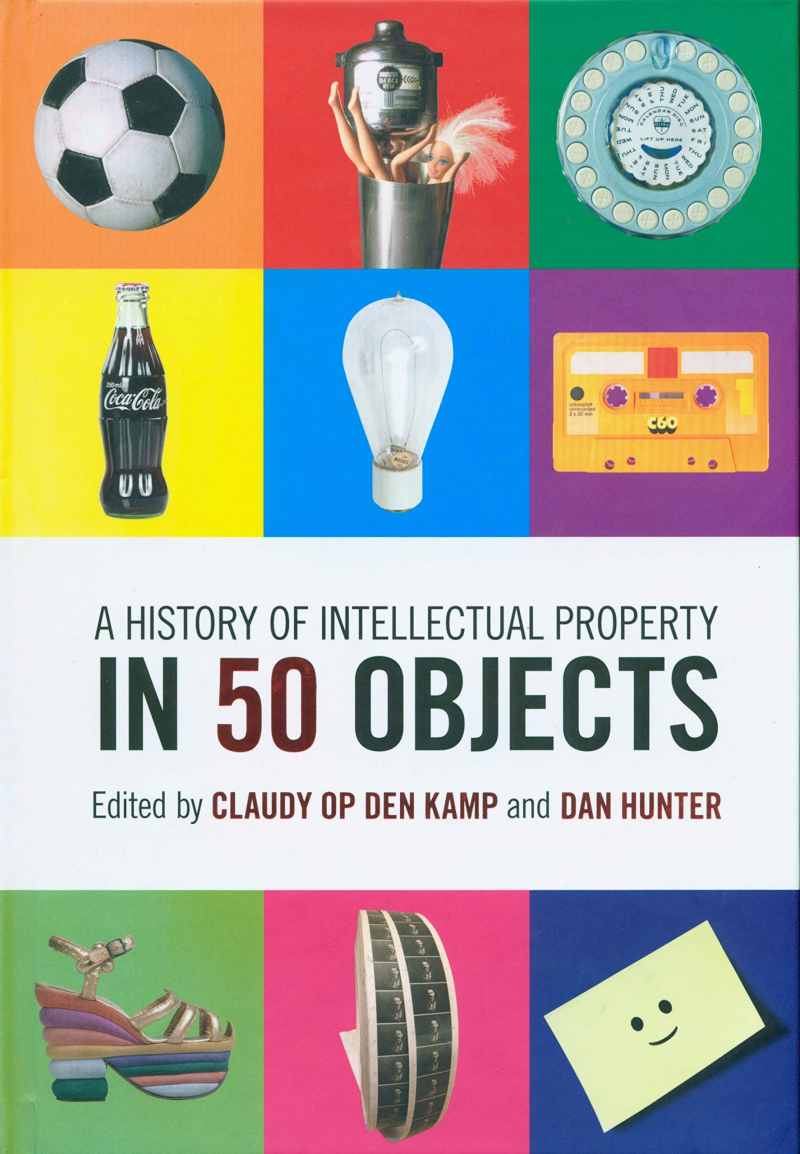
https://www.amazon.com/ 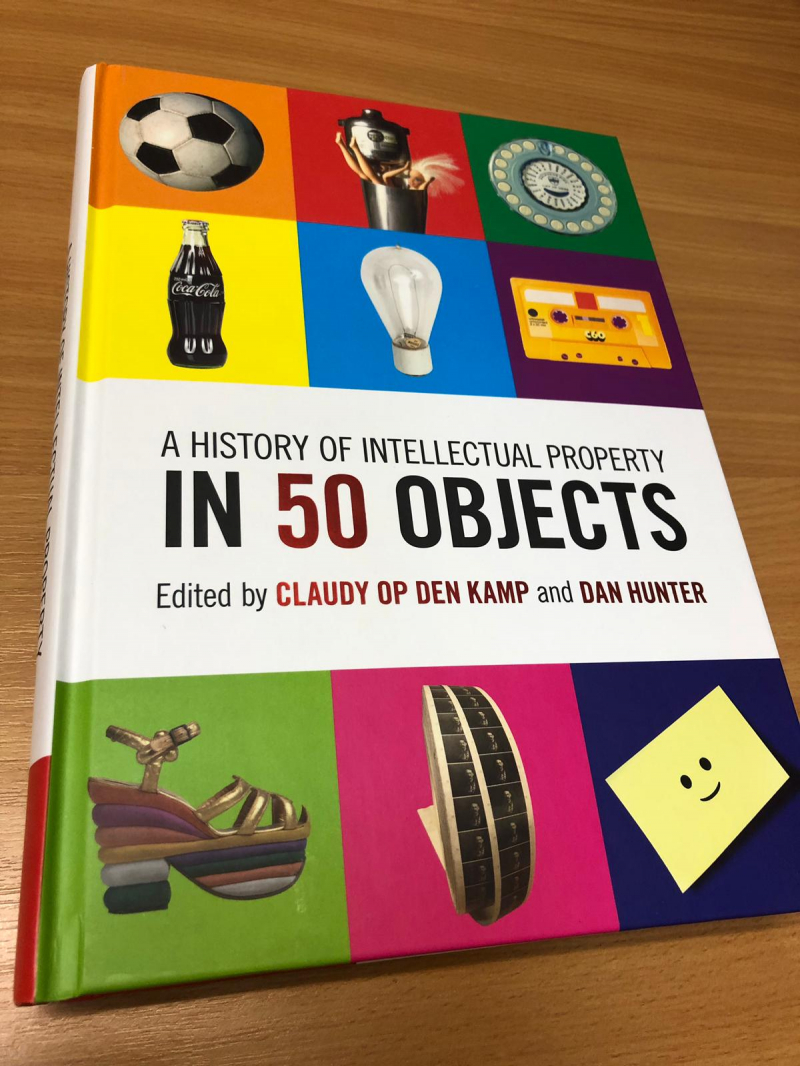
https://ipkitten.blogspot.com/ -
Stephen Fishman has dedicated his career as an attorney and author to writing helpful, authoritative, and well-known guides on business, taxation, and intellectual property issues for small businesses, entrepreneurs, independent contractors, and freelancers. He has written 20 books and hundreds of articles and has been quoted in The New York Times, The Wall Street Journal, The Chicago Tribune, and numerous other publications.
Millions of creative works, including books, artwork, photos, songs, movies, and more, are available in the public domain for free. Whether you prefer Beethoven or Irving Berlin, Edvard Munch or Claude Monet, The Public Domain will provide you with inspiration.
Among the best books on intellectual property and copyright, The Public Domain is the only book that helps you find and identify which creative works are protected by copyright and which are not. It covers the rules for:
- writings
- music
- art
- photography
- architecture
- maps
- choreography
- movies
- video
- software
- databases
- collections
For the first time in decades, new works entered the public domain in 2019, and more are being added each year. The 9th edition has been completely updated to include new public domain resources as well as the most recent legal changes affecting copyright protection of songs, books, photos, and other creative works, as well as public domain rules outside the United States.
Author: Stephen Fishman J.D.
Link to buy: https://www.amazon.com/Public-Domain-Copyright-Free-Writings-Music/dp/1413327567/
Ratings: 4.4 out of 5 stars (from 43 reviews)
Best Sellers Rank: #1,196,671 in Books
#99 in Copyright Law
#675 in Business Encyclopedias
#911 in Research Reference Books
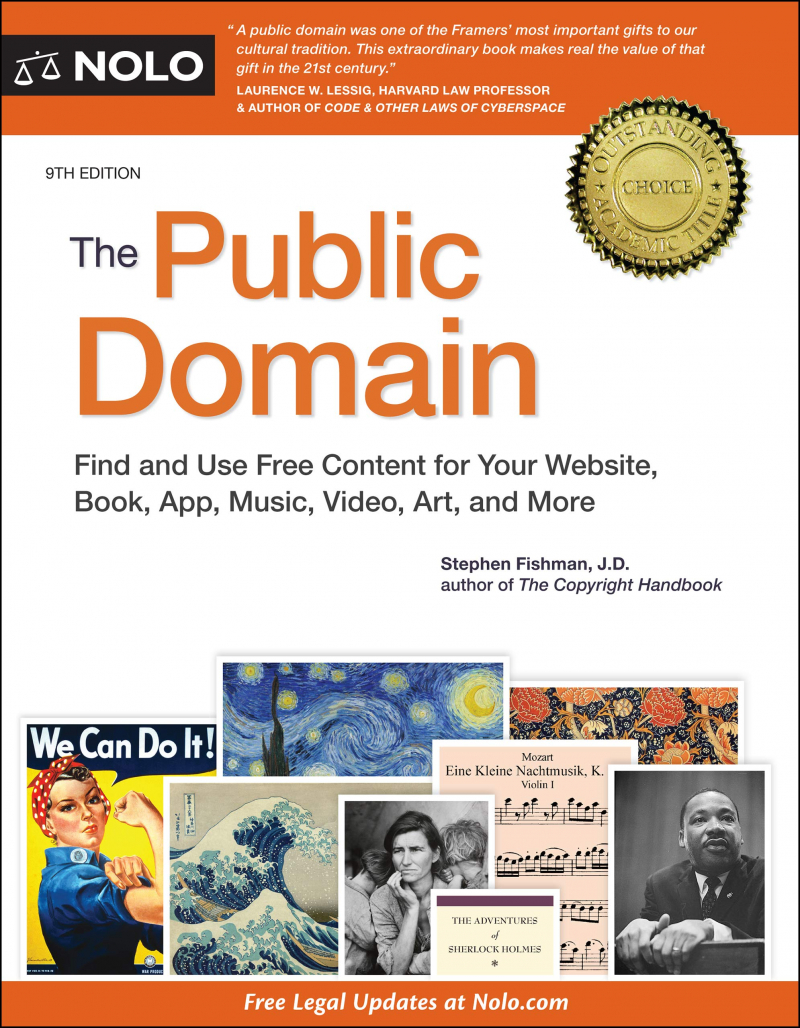
https://www.amazon.com/ 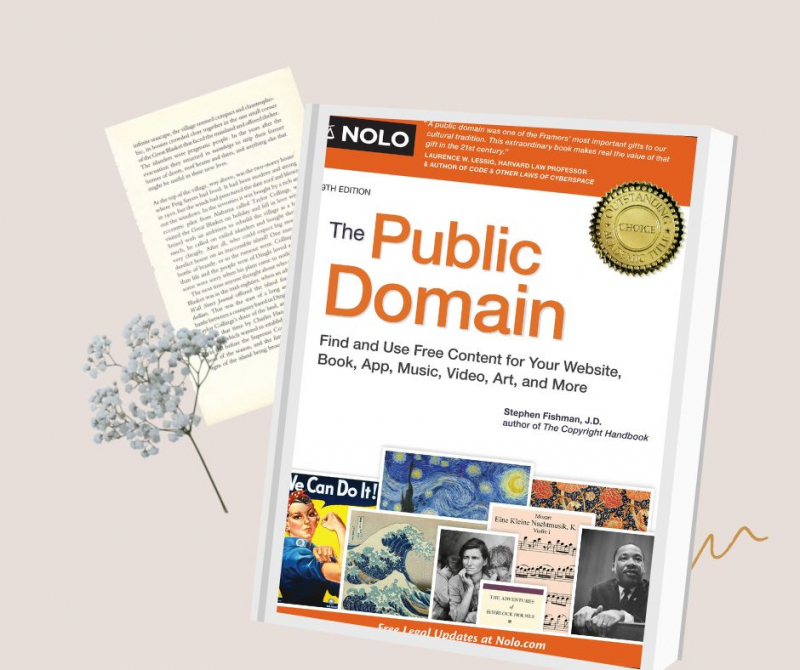
https://www.amazon.com/ -
Jennifer E. Rothman is a law professor at the University of Pennsylvania Carey School of Law.
Who decides how others use one's identity? This centuries-old legal question requires closer examination in the Internet age. Jennifer Rothman answers that question using the right of publicity, a little-known law frequently used by celebrities, not just for the famous but for everyone. In challenging the conventional story of the emergence, development, and justifications of the right of publicity, Rothman demonstrates how it transformed people into intellectual property, leading to a bizarre world in which you can lose ownership of your own identity. This shift, and the subsequent expansion of the right, undermine individual liberty and privacy, limit free speech, and suppress artistic works.
The Right to Publicity, one of the best books on intellectual property and copyright, traces its origins back to the late 1800s, when the right to privacy was established. The primary motivation for enacting privacy laws was to protect people from "wrongful publicity." This privacy-based protection extended not only to anonymous private citizens, but also to well-known actors, athletes, and politicians. Beginning in the 1950s, the right evolved into a fully transferable intellectual property right, sparking a slew of legal battles ranging from the control of deceased celebrities like Prince to the NCAA's use of student athletes' images, to lawsuits by Facebook users and victims of revenge porn.
The right to be heard has gone astray. Rothman proposes returning the right to its origins, reclaiming privacy for a public world in the process.
Author: Jennifer Rothman
Link to buy: https://www.amazon.com/Right-Publicity-Privacy-Reimagined-Public/dp/0674980980/
Ratings: 4.8 out of 5 stars (from 11 reviews)
Best Sellers Rank: #1,691,199 in Books
#159 in Media & the Law
#650 in Intellectual Property Law (Books)
#1,380 in Legal History (Books)
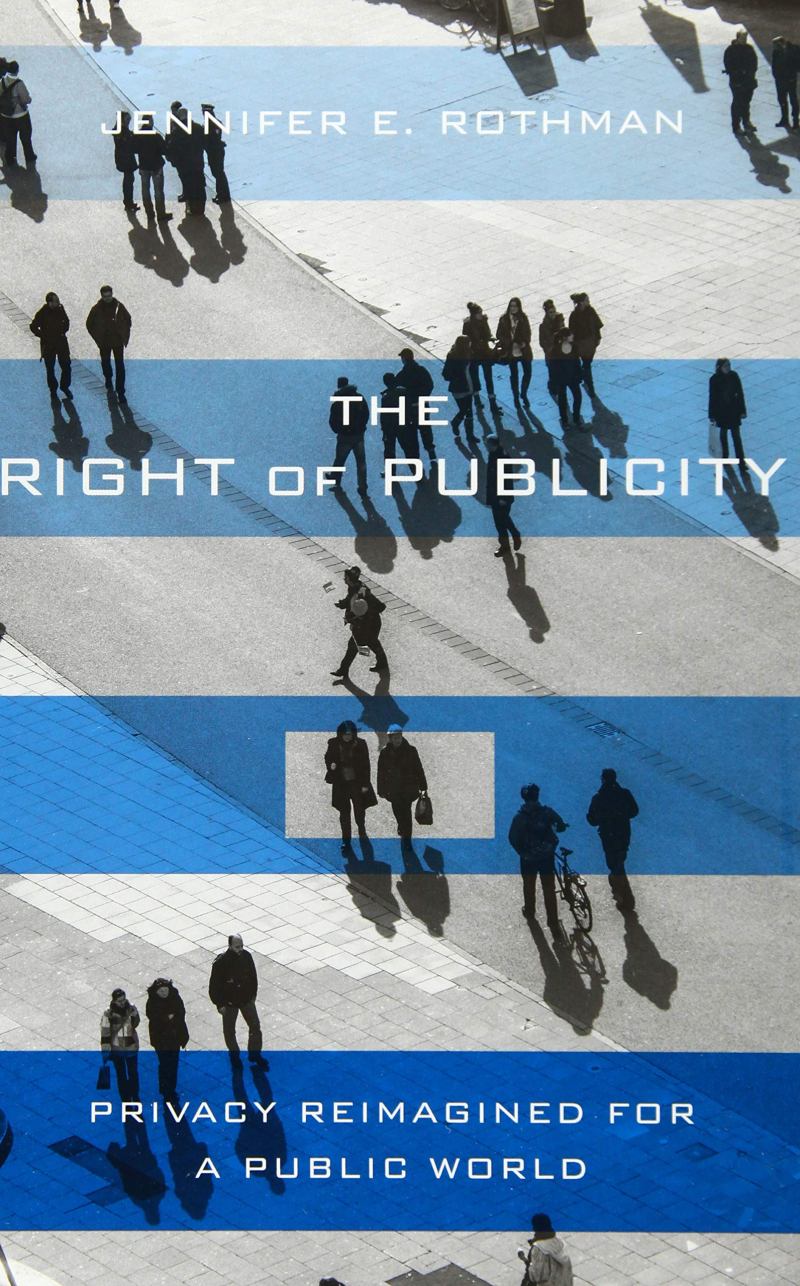
https://www.amazon.com/ 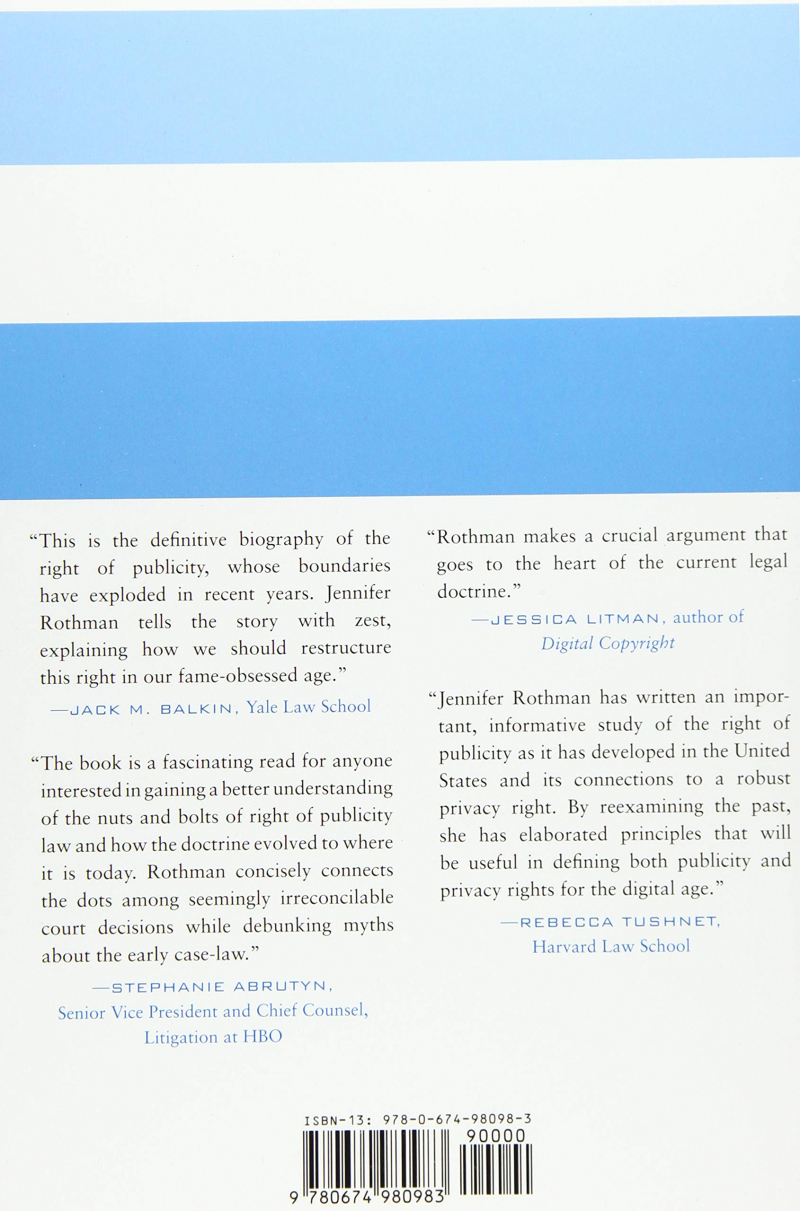
https://www.amazon.com/













